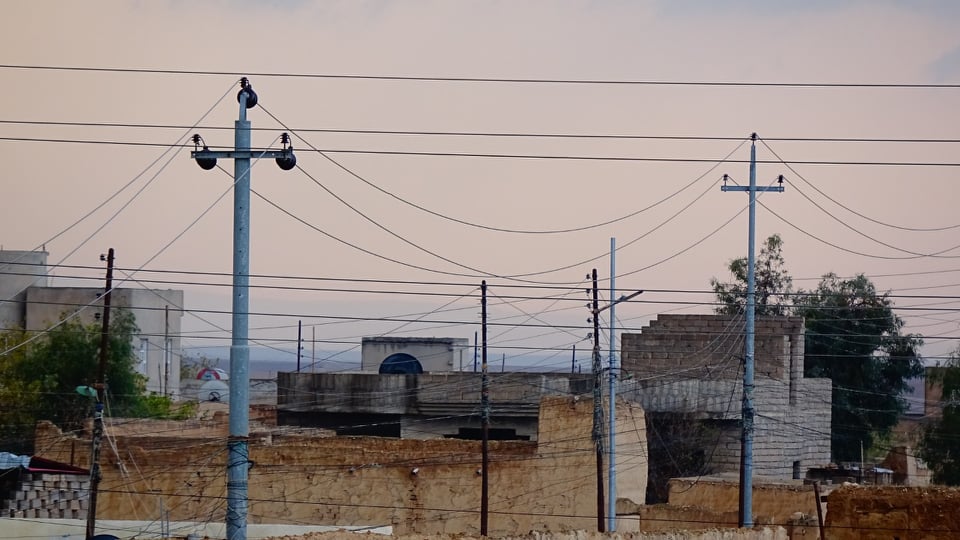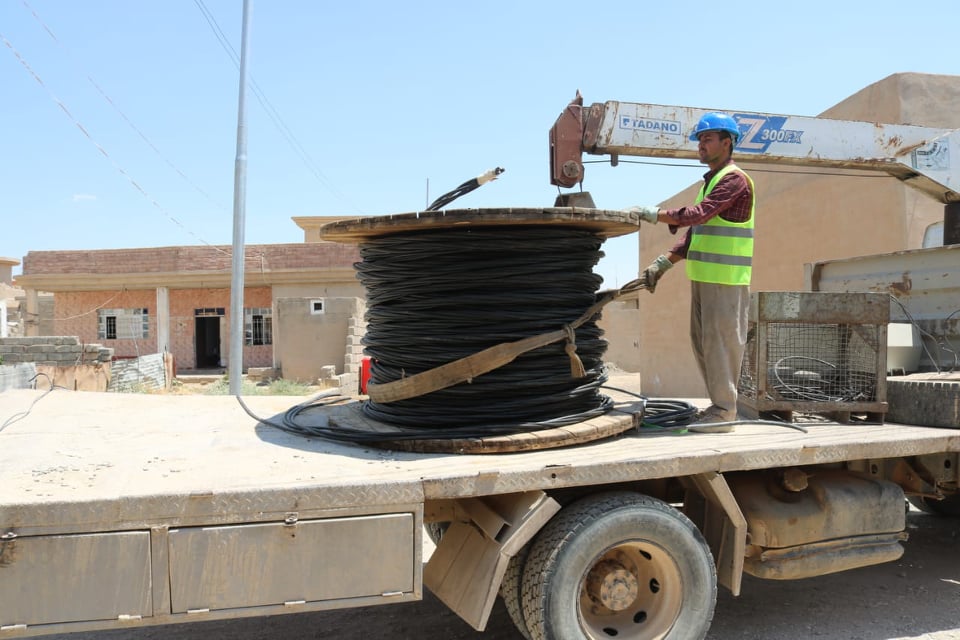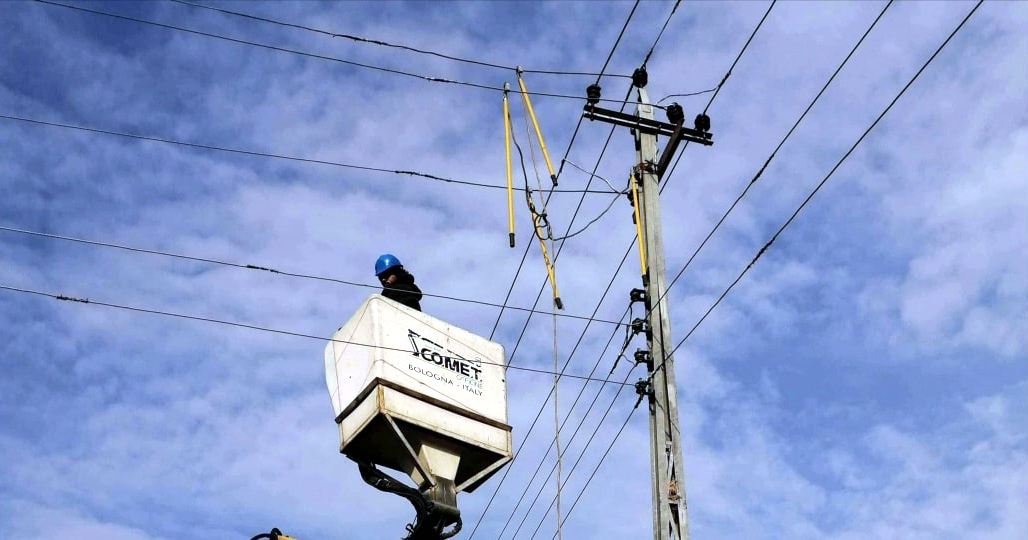Residents in Shingal get only one hour of electricity per day, and on some days no feed at all. Most of them can’t afford paying for feed from privately-owned generators.
“I have never seen the national electricity feed being so bad. Sometimes we don’t even get one hour of feed per day,” Haso Hasan, a resident in Shingal, said.
Haso is a grocer, he is obliged to use a small generator for his shop.
“I have to buy fuel for the generator every day. I only use it for the lights in the shop.”

“I know tens of families who haven’t paid last month’s dues of [private-owned] generators, because the price is too high and they don’t have money,” Haso said.
Khidir Ali, head of Electricity Directorate of Shingal’s Sinuné subdistrict, told KirkukNow: “There is an immense pressure on the national electricity network, that’s why it’s not enough to provide it for everyone.”
According to official numbers, the Sinuné subdistrict receives 15 megawatts from the national network, while it needs 30 megawatts.
Sometimes there is only 30 minutes of feed. This has led to doubling of the price of feed from privately-owned generators
According to Khidir Ali, on top of the weak national feed, there are other issues like extreme weather and occasional collapse of transmission towers which takes a long time to repair because they don’t have enough personnel.
Sinuné subdistrict’s Electricity Directorate has 30 personnel, two of whom are in charge of repairs and have only one car at their disposal to use.
The Giruéz subdistrict also used to suffer from lack of electricity, until it was provided with a number of small generators by some NGOs and political parties.
“Sometimes there is no electricity for two to three days. We used to get 10 hours of electricity per day,” said Ahmad Hamad, another resident.
Hamad suspects the service is kept poor “deliberately” so that the area remains desolate and the displaced would not be able to return, because, he says, no other area is neglected as such.
“These few days are very sacred for Ezidis, because they fast. They need electricity and other services, but the government apparently doesn’t have any respect for us.”

According to the authorities in Shingal, 65% of electric facilities were damaged in Shingal district during the ISIS war.
Khudéda Chuki, mayor of Sinuné subdistrict, told KirkukNow: “The electricity in Shingal has been very poor in the past 20 days; it doesn’t reach two hours per day; sometimes there is only 30 minutes of feed. This has led to doubling of the price of feed from privately-owned generators.”
Chuki says that the main distribution station of Nineveh doesn’t provide the necessary feed, “but in other areas, like Tal Afar, electricity is not as bad as in Shingal. Which raises questions; it is not right to treat people unjustly.”
The district of Shingal is located about 120 km west of Mosul in Nineveh province. It is considered part of the disputed areas according to the Iraqi constitution.





